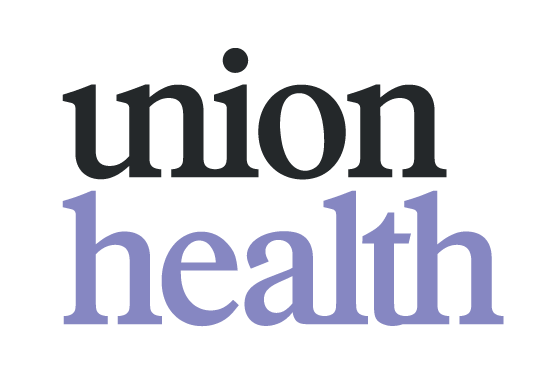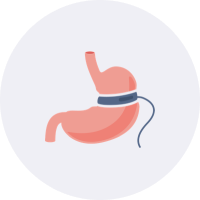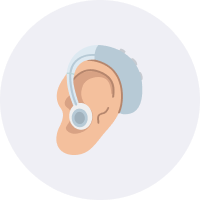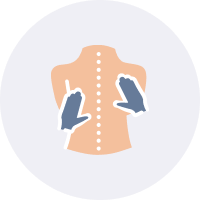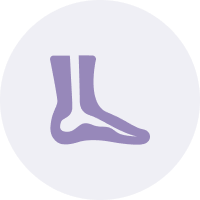Union Health Fund Rules
Union Health Fund Rules
These fund rules set out the general principles and rules of membership and claiming under which our fund operates.
III. Health service providers
C. Providers treating family members or self-treatment Unless otherwise approved at our discretion, we will not pay a benefit for services provided or goods supplied by an insured person (who is also a provider) to: a) themselves, their dependant, partner, or other insured person on the policy; and b) that insured person’s business associate or their partner or dependant, where the business associate, partner or dependant is insured with us.
IV. Benefits
We will pay eligible benefits in accordance with the relevant policy schedule in these rules. If the Private Health Insurance Act 2007 requires us to provide a particular benefit that is not provided for by these rules, we will provide the benefit on the minimum terms required by law. To ensure the correct payment of a benefit, we may request information from an insured person or your health service provider prior to, or after the payment of a benefit.
E. Benefit exclusions
We will not pay benefits where:
e) the costs of the service were not incurred by the insured person
f) treatment has not yet been provided, including but not limited to, payments made in advance and charges raised for non-attendance or late cancellations
i) the treatment does not meet the terms and conditions specified in these rules
k) the treatment was a telephone, video or email consultation or letters of advice unless part of an approved chronic disease management program, health 29 management program, psychology consultation or speech therapy consultation
l) the treatment was provided as part of care and accommodation in an aged care service
o) a general / extras treatment is covered by Medicare
r) goods were purchased from suppliers located outside of Australia or who do not hold an ABN
t) services primarily take the form of sport, recreation or entertainment and are not part of an approved healthy lifestyle program or chronic disease management program
u) treatment was, in the reasonable opinion of a clinical advisor appointed by us, unnecessary or excessiv
v) services were not provided by an approved provider
w) treatment is of an experimental nature
z) the insured person fails to authorise us to obtain further information from the provider to validate the claim e.g. clinical notes
aa) an insured person or provider gives inaccurate or misleading information relevant to the claim.
VI. General / Extras treatment
C. Same day treatments We have a restriction on same day treatment. Where you have two general / extras treatments on the same day for: a. the same type of service or treatment, relating to two separate conditions; or b. a second or subsequent service, or treatment of a different type, on the same condition, benefits are payable only where: I. each service or treatment is provided in a separate consultation; 40 II. there is a time lapse of two hours or more between consultations; and III. treatments are evidence based and clinically necessary. We will only pay a benefit for a maximum of two consultations on any one day for the same type of service, treatment for the same condition, or treatment from the same provider. This rule may not apply to selected dental services.
Specific Services
D. Dental
Dental benefits will be provided only in respect of procedures or services recommended by the Australian Dental Association.
Orthodontic treatment:
Lifetime limits apply to orthodontic treatment.
Orthodontic benefits paid on previous levels of cover or with other health funds will count toward the lifetime limit.
We pay benefits for active orthodontic treatment. Active treatment is when fixed or removable appliances are in place and teeth are being moved or kept into a corrected position.
Where a member pays upfront for the full course of orthodontic treatment, benefits will be paid up to the maximum calendar year benefit for each treatment year up to the applicable lifetime limit for the duration of active treatment.
Itemised receipts and/or a letter from an orthodontist on their company letterhead is required to confirm active treatment is still continuing in the second and subsequent years and the letter needs to confirm the anticipated date of appliance removal.
P. Optical Refer to Schedule B for a list of relevant annual limits and sub limits in addition to the below.
Benefits for optical services as listed in Schedule B are payable when:
Prescribed by a registered Optometrist or Ophthalmologist in private practice; and
Where sight correction or adjustment to the lens is clearly shown on the prescription form.
Benefits are not payable for non-prescription sunglasses or for additional lens treatments such as tinting, hard coating or transitional. The date the appliance was ordered is used to calculate the benefit payable.
S. Physiotherapy / exercise physiology / hydrotherapy
Benefits for physiotherapy services as listed in Schedule B are payable when provided by registered Physiotherapists and Exercise Physiologists in private practice and:
The provider is acting within their usual scope of practice;
Group sessions are preceded by a consultation with a registered Physiotherapist or Exercise Physiologist in order to diagnose and plan treatment;
Group sessions are part of an individual treatment plan to treat or prevent injury or to manage a chronic disease;
Preceding consultations and group sessions are provided at the same practice; and
Clinical notes are documented by the provider relevant to individual participants for each consultation including group sessions. General wellness and/or exercise-based group physiotherapy or exercise physiology services are not eligible for a benefit.
VII. Claims
A. Form
All claims must be submitted in the approved form with original accounts or receipts. Accounts or receipts should be on the provider’s official account or letterhead. All accounts or receipts must be itemised and show the name and practice address of the person providing the service. The account or receipt must also state the name of the person receiving the service, a description of the service, the date the service was provided and the cost of the service. Accounts or receipts must be generated by the provider, templated documents that are populated by the insured person will not be accepted. Cash register dockets, copies of credit card receipts or bank statements, Groupon receipts and gift vouchers are not acceptable documents for making claims.
C. Assessing your claim
The primary member must provide us with accurate and complete information and advise us of any issue that may affect a claim. We may request additional information from you or your health provider in order to validate your claim. This may include requesting copies of clinical documentation for our review. If you do not provide this information or instruct your health provider not to provide this information, we may refuse to pay a benefit in relation to that claim.
E. Reimbursement of claims
We may seek to have a claim reimbursed to us if:
a) the claim was incorrectly assessed
b) an overpayment has occurred
c) the claim was found to contain false or misleading information
f) information is received by us that the benefit should not have been paid (refer to rule IV.E).
